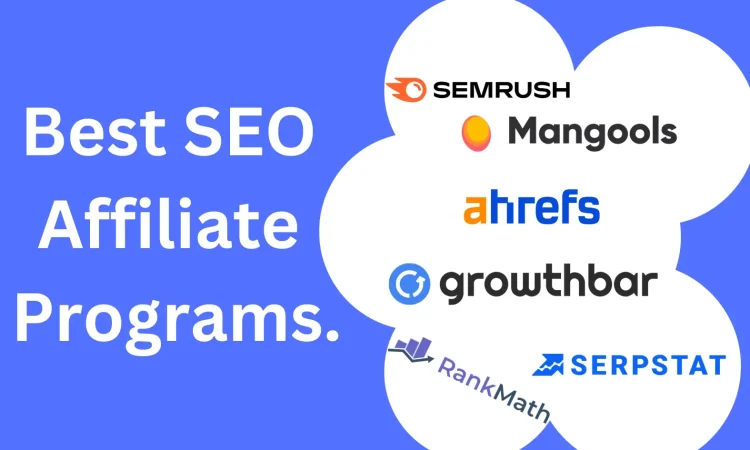How to Build a Successful Affiliate Marketing Website: A Step-by-Step Guide 2025
Affiliate marketing is one of the most popular ways to make money online. It involves promoting products or services from other companies and earning a commission for every sale made through your referral link. With the right approach, you can build a successful affiliate marketing website that generates a steady stream of income. In this guide, we will walk you through the entire process of setting up an affiliate marketing website from scratch. Let’s dive in!
What Is Affiliate Marketing?
Affiliate marketing is a performance-based marketing strategy where you earn a commission by promoting other people’s or companies’ products. When a customer clicks on your affiliate link and makes a purchase, you get a percentage of the sale as a commission. The beauty of affiliate marketing is that you don’t need to create your own products. Instead, you focus on promoting existing products and services that align with your niche.
This type of marketing is beneficial for both affiliates and companies. Companies can reach a broader audience without the hefty costs of traditional advertising, while affiliates can make money by simply referring customers to products they already like or use. The key to success in affiliate marketing is choosing the right products and knowing how to market them effectively. With a well-structured website, you can become a valuable affiliate and start generating passive income.
Choosing a Niche
The first step in building a successful affiliate marketing. website is choosing a niche. A niche is a specific topic or area that your website will focus on. Selecting the right niche is crucial because it determines your target audience and the type of products you will promote. When choosing a niche, consider your interests and expertise. It’s easier to create content for a topic you are passionate about.
Look for a niche that has high demand and low competition. You can use tools like Google Trends, Ubersuggest, and Ahrefs to analyze the popularity and competition of different niches. Ideally, you want to find a balance between your passion and a profitable market. Avoid choosing a niche that is too broad, like “health and fitness,” as it can be hard to stand out. Instead, narrow it down to a sub-niche like “keto diet for beginners” or “home workout equipment.”
Researching Affiliate Programs
After selecting a niche, the next step is to find affiliate programs to join. An affiliate program is a partnership between you and a company that allows you to promote their products in exchange for a commission. There are various types of affiliate programs available, including those offered directly by companies and those hosted on affiliate networks like Amazon Associates, ClickBank, and ShareASale.
Research different affiliate programs to find those that align with your niche. Look at the commission rates, cookie duration (how long your referral is tracked), and the reputation of the program. Higher commission rates are attractive, but they often come with products that are harder to sell. Also, check the payment methods and minimum payout thresholds. Choose programs that offer reliable payments and have a good track record. The goal is to find products that resonate with your target audience and provide good value.
Setting Up Your Website
To get started with affiliate marketing, you need a website. Your website is your online hub where you will publish content, engage with your audience, and share your affiliate links. Start by choosing a domain name that reflects your niche. The domain name should be easy to remember, spell, and related to your niche. You can use domain registrars like Namecheap or GoDaddy to purchase your domain.
Next, you need to select a web hosting provider. Hosting companies like Bluehost, SiteGround, and HostGator offer affordable hosting plans that are ideal for beginners. Once you have a domain and hosting, you can set up your website using a content management system (CMS) like WordPress. WordPress is user-friendly, highly customizable, and has numerous plugins that can help you optimize your site for affiliate marketing. After installing WordPress, choose a responsive theme that looks good on both desktop and mobile devices.
Creating Quality Content
Content is the backbone of any successful affiliate marketing website. Your goal is to create valuable content that attracts visitors and encourages them to click on your affiliate links. There are various types of content you can create, including blog posts, product reviews, comparison articles, tutorials, and buying guides. The key is to provide useful information that solves a problem or answers a question for your audience.
When creating content, focus on quality over quantity. Make sure your articles are well-researched, informative, and engaging. Use a conversational tone to make your content easy to read and relatable. Incorporate keywords naturally throughout your content to help with search engine optimization (SEO). Include relevant images, videos, and infographics to make your posts more appealing. Remember, the better the content, the more likely visitors are to trust your recommendations and click on your affiliate links.
Optimizing Your Website for SEO
Search engine optimization (SEO) is essential for driving organic traffic to your affiliate marketing website. SEO involves optimizing your site so that it ranks higher in search engine results for specific keywords related to your niche. The higher your site ranks, the more visibility and traffic it will get. There are several aspects of SEO to focus on, including on-page SEO, off-page SEO, and technical SEO.
On-page SEO involves optimizing the content on your website. This includes using relevant keywords, writing meta descriptions, using header tags, and including internal and external links. Off-page SEO focuses on building backlinks from other reputable websites, which helps boost your site’s authority. Technical SEO involves optimizing your website’s speed, mobile-friendliness, and security. Use tools like Google Analytics and Google Search Console to monitor your website’s performance and make necessary adjustments.
Building a Keyword Strategy
A solid keyword strategy is crucial for affiliate marketing success. Keywords are the terms and phrases that users type into search engines when looking for information. By targeting the right keywords, you can attract the right audience to your website. Start by conducting keyword research using tools like Google Keyword Planner, SEMrush, or Ahrefs. Look for long-tail keywords that have lower competition but still attract a decent amount of traffic.
Long-tail keywords are more specific and less competitive than short-tail keywords. For example, instead of targeting “running shoes,” you might target “best running shoes for flat feet.” These specific keywords often indicate that the user is ready to make a purchase, making them valuable for affiliate marketing. Once you have a list of keywords, incorporate them naturally into your content, including titles, headers, and throughout the text.
Creating a Content Calendar
Consistency is key in affiliate marketing, and one of the best ways to maintain a steady flow of content is by creating a content calendar. A content calendar helps you plan and organize your content in advance, ensuring that you always have fresh and relevant posts to publish. Start by brainstorming content ideas based on your keyword research and audience interests. Include different types of content, such as product reviews, tutorials, and listicles, to keep your audience engaged.
Set a realistic publishing schedule that you can stick to. Whether it’s once a week or twice a month, consistency is more important than frequency. Use tools like Trello, Asana, or Google Calendar to create your content calendar. Plan out your topics, set deadlines, and track your progress. A well-organized content calendar will help you stay on track and ensure that your website continues to attract traffic.
Promoting Your Website
Once your website is up and running with quality content, the next step is to promote it. The more traffic you can drive to your site, the higher the chances of generating affiliate sales. There are several effective ways to promote your affiliate marketing website, including social media, email marketing, and guest blogging.
Leverage social media platforms like Facebook, Instagram, Twitter, and Pinterest to share your content and engage with your audience. Join groups and communities related to your niche to share your insights and build your authority. Email marketing is another powerful tool for promoting your content. Build an email list by offering a freebie, like an eBook or a discount code, in exchange for visitors’ email addresses. Send regular newsletters with your latest content and product recommendations. Guest blogging on other websites in your niche is also a great way to reach a broader audience and build backlinks to your site.
Monitoring and Analyzing Performance
To build a successful affiliate marketing website, you need to constantly monitor and analyze its performance. This will help you understand what’s working and what needs improvement. Use tools like Google Analytics to track your website traffic, user behavior, and conversion rates. Analyze which pages are getting the most traffic and which products are generating the most sales.
Pay attention to metrics like bounce rate, average session duration, and click-through rates (CTR). A high bounce rate might indicate that visitors are not finding what they’re looking for, while a low CTR could mean that your calls-to-action (CTAs) need improvement. Use this data to make informed decisions about your content and marketing strategies. Regular analysis will help you optimize your website and increase your affiliate sales.
Building an Email List
Building an email list is an essential part of affiliate marketing. An email list allows you to directly communicate with your audience and promote your content and products. Start by offering a lead magnet, such as a free eBook, checklist, or discount code, to encourage visitors to subscribe to your email list. Use email marketing platforms like Mailchimp, ConvertKit, or AWeber to manage your email list and send newsletters.
Send regular emails with valuable content, such as product reviews, tips, and exclusive offers. Personalize your emails to make your subscribers feel valued. Avoid being too salesy; focus on providing value and building a relationship with your audience. A well-nurtured email list can be a powerful tool for driving traffic to your website and increasing your affiliate sales.
Testing and Optimizing Your Affiliate Links
Testing and optimizing your affiliate links is crucial for maximizing your earnings. Start by tracking the performance of your affiliate links to see which ones are generating the most clicks and sales. Use link-tracking tools like ThirstyAffiliates or Pretty Links to monitor your affiliate links and gather data on their performance.
Test different placements of your affiliate links within your content to see what works best. For example, try placing links within the first few paragraphs of your article, at the end, or in a call-to-action button. Experiment with different anchor texts and link types to find what resonates most with your audience. Regularly update your affiliate links to ensure they are working correctly and leading to the right product pages. Optimizing your affiliate links can significantly increase your click-through rates and conversions.
Scaling Your Affiliate Marketing Business
Once you start generating consistent income from your affiliate marketing website, it’s time to scale your business. Scaling involves expanding your efforts to increase traffic, conversions, and earnings. One way to scale is by diversifying your income streams. In addition to affiliate marketing, you can explore other monetization methods, such as display ads, sponsored posts, and selling digital products.
Consider expanding your content to cover related niches or sub-niches. For example, if your website focuses on home fitness, you could expand to cover nutrition or workout apparel. Another way to scale is by investing in paid advertising, such as Google Ads or Facebook Ads, to drive targeted traffic to your site. Keep testing new strategies, analyzing your results, and optimizing your efforts to grow your affiliate marketing business.
Staying Up to Date with Industry Trends
The affiliate marketing industry is constantly evolving, so staying up to date with the latest trends is essential. New products, tools, and strategies are always emerging, and keeping up with these changes can help you stay ahead of the competition. Follow industry blogs, podcasts, and forums to stay informed about the latest trends and updates.
Attend affiliate marketing conferences and webinars to network with other marketers and learn from industry experts. Joining online communities, such as Facebook groups and Reddit threads, can also provide valuable insights and tips. Staying informed will help you adapt your strategies, discover new opportunities, and continue to grow your affiliate marketing website.
Final Thoughts on Building a Successful Affiliate Marketing Website
Building a successful affiliate marketing website takes time, effort, and persistence. It’s not a get-rich-quick scheme, but with the right approach and dedication, it can become a lucrative source of passive income. Focus on choosing a profitable niche, creating valuable content, optimizing for SEO, and engaging with your audience. Remember, consistency is key, and the more effort you put into your website, the more you will reap the rewards.
By following this step-by-step guide, you are well on your way to creating a profitable affiliate marketing website. Keep learning, experimenting, and optimizing your strategies to achieve long-term success. Good luck!
“”””””””””””””””””””””””””””””””””””””””””””””””””””””””””””””””””””””””””””””””””””””””””””””””””””””””””””””””””””””””””””””””””
Exploring the Best SEO Tools for 2025: Enhance Your Online Presence
In the competitive world of digital marketing, having a solid SEO strategy is crucial to enhancing your online presence. As we move into 2025, the landscape of SEO continues to evolve, and new tools emerge to help businesses stay ahead of the competition. This article explores the best SEO tools for 2025, providing you with insights on how to optimize your website, boost your search engine rankings, and drive organic traffic. Whether you are a beginner or an experienced marketer, these tools will help you elevate your SEO game.
What is SEO and Why Does It Matter?
SEO, or Search Engine Optimization, refers to the process of optimizing your website to increase its visibility on search engines like Google, Bing, and Yahoo. The primary goal of SEO is to rank higher in search engine results pages (SERPs), which in turn drives more organic (non-paid) traffic to your site. In 2025, SEO is as important as ever because most users tend to click on one of the top results. If your website does not appear on the first page of results, you could be missing out on a significant amount of potential traffic.
A well-executed SEO strategy helps build trust and credibility for your brand, improves user experience, and provides valuable insights into user behavior. By understanding what your audience is searching for and tailoring your content accordingly, you can increase your chances of capturing their attention. The right SEO tools can make this process more efficient by providing data and analytics to help you make informed decisions about your website’s performance.
Keyword Research Tools: Finding the Right Words
Keyword research is the cornerstone of any SEO strategy. It involves identifying the words and phrases that people use when searching for products or services related to your business. Keyword research tools help you discover relevant keywords with high search volumes and low competition, allowing you to target the right audience effectively.
One of the best tools for keyword research in 2025 is Google Keyword Planner. It provides insights into search volume, competition, and suggested bid prices for paid ads. Another powerful tool is Ahrefs Keywords Explorer, which offers a comprehensive analysis of keyword difficulty, click potential, and search volume trends. Additionally, SEMrush is an excellent choice for finding related keywords and long-tail phrases that can boost your content’s visibility.
By using these tools, you can create a list of targeted keywords to include in your content, meta descriptions, and titles, helping your website rank higher in search results. Effective keyword research sets the foundation for all other aspects of SEO, ensuring that your content aligns with what users are searching for.
On-Page SEO Tools: Optimizing Your Content
On-page SEO involves optimizing individual web pages to improve their search engine rankings. This includes optimizing content, HTML tags, images, and internal links. On-page SEO tools help you analyze and enhance these elements to ensure that your pages are fully optimized.
Yoast SEO is a popular on-page SEO tool for WordPress users. It helps you optimize your content for specific keywords, create SEO-friendly titles and meta descriptions, and analyze readability. Another excellent tool is Surfer SEO, which provides real-time recommendations for improving your content based on top-ranking pages. It suggests keyword usage, content length, and structure to help you compete with the best-performing pages in your niche.
By utilizing on-page SEO tools, you can improve your content’s relevance, enhance user experience, and increase your chances of ranking higher in search results. These tools guide you through the optimization process, making it easier to create content that search engines and users love.
Technical SEO Tools: Enhancing Website Performance
Technical SEO focuses on improving the technical aspects of your website, such as site speed, mobile-friendliness, and crawlability. Technical SEO tools help you identify and fix issues that could be affecting your site’s performance and search engine rankings.
Google Search Console is a must-have tool for monitoring your website’s technical health. It provides insights into crawl errors, indexing issue8s, and mobile usability problems. Screaming Frog SEO Spider is another powerful tool that crawls your website and identifies issues such as broken links, duplicate content, and missing metadata. For page speed analysis, GTmetrix and Google PageSpeed Insights offer detailed reports on how to improve your site’s loading time.
Investing in technical SEO tools is essential for ensuring that your website is accessible, fast, and user-friendly. By addressing technical issues, you can provide a better experience for your visitors and increase your chances of ranking higher in search engine results.
Backlink Analysis Tools: Building Authority
Backlinks, or inbound links, are one of the most important ranking factors in SEO. They signal to search engines that your content is valuable and authoritative. Backlink analysis tools help you track your website’s backlinks, identify link-building opportunities, and monitor your competitors’ backlink strategies.
Ahrefs is a leading backlink analysis tool that provides a comprehensive overview of your backlink profile, including the number of referring domains, anchor text distribution, and domain authority. Moz Link Explorer is another excellent tool that helps you discover new link-building opportunities and analyze your competitors’ backlinks. SEMrush Backlink Analytics offers similar features, allowing you to track your backlinks and assess their quality.
By using backlink analysis tools, you can build a strong and authoritative link profile that enhances your website’s credibility and search engine rankings. Quality backlinks from reputable sites can significantly boost your site’s visibility and organic traffic.
Competitor Analysis Tools: Stay Ahead of the Game
Understanding what your competitors are doing can provide valuable insights for your SEO strategy. Competitor analysis tools help you identify your competitors’ top-performing keywords, content, and backlinks, allowing you to develop a strategy to outperform them.
SEMrush and Ahrefs are two of the most popular competitor analysis tools. They provide detailed reports on your competitors’ organic search traffic, top keywords, and backlink profiles. SpyFu is another excellent tool that focuses on uncovering your competitors’ paid and organic search strategies. It shows you the keywords they are bidding on and the ads they are running, giving you ideas for your own campaigns.
By analyzing your competitors’ strategies, you can identify gaps in your own SEO efforts and find new opportunities to improve your rankings. Competitor analysis tools help you stay ahead of the competition by providing data-driven insights into what works in your industry.
Content Optimization Tools: Creating Engaging Content
Content is king in the world of SEO, and creating high-quality, engaging content is essential for attracting and retaining visitors. Content optimization tools help you analyze your content’s performance and make improvements to increase its visibility and engagement.
Surfer SEO and Frase are two powerful content optimization tools that provide recommendations based on top-ranking pages. They suggest improvements for keyword usage, content structure, and readability. Grammarly is another helpful tool that checks your content for grammar and spelling errors, ensuring that your writing is clear and professional.
By using content optimization tools, you can create content that resonates with your audience and ranks well in search engines. These tools help you craft content that is not only informative but also engaging and user-friendly.
Local SEO Tools: Targeting Local Audiences
For businesses that serve a local market, local SEO is essential. Local SEO tools help you optimize your website for local search queries, improve your visibility on Google Maps, and manage your online reputation.
Google My Business is the most important tool for local SEO. It allows you to create a business profile that appears in local search results and on Google Maps. BrightLocal is another excellent tool that helps you manage your local listings, monitor reviews, and track your local search rankings. Moz Local also offers similar features, helping you ensure that your business information is accurate and consistent across the web.
Using local SEO tools can help you attract more customers from your local area, increase foot traffic to your physical location, and enhance your online visibility in local search results.
Rank Tracking Tools: Monitoring Your Progress
Monitoring your website’s performance is crucial for understanding the effectiveness of your SEO efforts. Rank tracking tools help you track your search engine rankings for specific keywords and analyze your progress over time.
SEMrush and Ahrefs offer robust rank tracking features, allowing you to monitor your keyword rankings and see how they change over time. SERPWatcher by Mangools is another great tool that provides daily updates on your rankings and shows you the overall performance of your SEO campaigns. Google Search Console also provides valuable insights into your keyword rankings and click-through rates.
By using rank tracking tools, you can measure the impact of your SEO efforts, identify trends, and make data-driven decisions to improve your rankings. Regularly monitoring your performance helps you stay on top of changes in search engine algorithms and adjust your strategy accordingly.
Analytics Tools: Understanding Your Traffic
Analytics tools provide valuable insights into your website’s traffic, user behavior, and overall performance. These tools help you understand where your visitors are coming from, what pages they are engaging with, and how they are interacting with your site.
Google Analytics is the most widely used analytics tool, offering detailed reports on user behavior, traffic sources, and conversion rates. Matomo is another excellent analytics platform that provides similar insights with a focus on user privacy. Hotjar offers heatmaps and session recordings, allowing you to see how users navigate your site and identify areas for improvement.
By using analytics tools, you can gain a deeper understanding of your audience, track the success of your marketing campaigns, and make data-driven decisions to enhance your website’s performance.
SEO Audit Tools: Comprehensive Site Analysis
SEO audit tools help you conduct a comprehensive analysis of your website to identify issues that may be affecting its performance. These tools provide detailed reports on various aspects of your site, including technical SEO, on-page SEO, and user experience.
SEMrush Site Audit and Ahrefs Site Audit are two of the most comprehensive SEO audit tools available. They analyze your website and provide a list of issues that need to be fixed, such as broken links, duplicate content, and missing metadata. Screaming Frog SEO Spider is another powerful tool that offers in-depth website crawling and auditing features, helping you identify technical issues that could be hindering your SEO performance.
Sitebulb is another excellent choice for SEO auditing, offering clear visualizations of your website’s structure and actionable recommendations for improvement. It focuses on a variety of factors, including internal linking, structured data, and mobile usability.
By using SEO audit tools, you can get a holistic view of your website’s health and identify areas that need improvement. Regular audits are essential for maintaining your site’s performance and ensuring that it aligns with the latest SEO best practices. An SEO audit helps you pinpoint specific issues that might be preventing your site from reaching its full potential, allowing you to take corrective actions promptly.
Link-Building Tools: Strengthening Your Link Profile
Link-building remains one of the most crucial aspects of SEO. A strong backlink profile can significantly enhance your site’s authority, improving its ranking on search engines. Link-building tools help you identify opportunities to acquire high-quality backlinks and manage your outreach campaigns effectively.
BuzzStream is a popular tool for managing link-building outreach. It helps you find contact information for potential link partners, organize your outreach efforts, and track your progress. Pitchbox is another powerful link-building platform that automates much of the outreach process, making it easier to scale your link-building campaigns.
Majestic SEO is a specialized tool that provides insights into your backlink profile, including metrics like Trust Flow and Citation Flow. It helps you analyze the quality of your backlinks and discover new linking opportunities. Hunter.io is also a great tool for finding the email addresses of potential link partners, making it easier to connect with them for guest posting or other link-building strategies.
Utilizing these link-building tools can help you acquire quality backlinks that boost your site’s authority and search engine rankings. Effective link-building requires persistence and strategy, but with the right tools, you can streamline the process and achieve better results.
Website Speed Optimization Tools: Enhancing User Experience
Website speed is a critical factor for both user experience and SEO. A slow-loading site can frustrate visitors, leading to higher bounce rates and lower rankings. Website speed optimization tools help you analyze your site’s performance and provide recommendations to improve its loading times.
Google PageSpeed Insights is a widely-used tool that evaluates your site’s speed on both mobile and desktop devices. It provides a detailed report with suggestions on how to reduce load times. GTmetrix is another excellent tool that offers in-depth analysis of your site’s performance, including factors like page size, load time, and the number of requests made.
Pingdom is a user-friendly tool that helps you monitor your website’s speed and uptime. It provides insights into different elements that affect load times, such as images, scripts, and server response times. For WordPress users, WP Rocket is a popular caching plugin that helps speed up your site by optimizing file loading and reducing the time it takes to render pages.
By using website speed optimization tools, you can enhance the user experience, reduce bounce rates, and improve your chances of ranking higher in search results. Faster websites not only provide a better experience for visitors but also receive favorable treatment from search engines.
Mobile SEO Tools: Optimizing for Mobile Users
With more users accessing websites via mobile devices, optimizing your site for mobile is essential. Mobile SEO tools help you ensure that your site is mobile-friendly and provides a seamless experience for users on smartphones and tablets.
Google Mobile-Friendly Test is a simple yet effective tool that checks whether your site is optimized for mobile devices. It provides insights into issues that may affect the mobile user experience, such as small font sizes and clickable elements that are too close together. SEMrush also offers a mobile audit feature that analyzes your site’s performance on mobile devices and provides recommendations for improvement.
BrowserStack is another helpful tool that allows you to test how your site appears on different mobile devices and browsers. This ensures that your site provides a consistent experience across various platforms. PageSpeed Insights can also be used to evaluate your site’s loading speed on mobile devices, helping you identify areas for optimization.
Using mobile SEO tools can help you enhance your site’s mobile experience, making it more user-friendly and accessible. As mobile search continues to grow, having a mobile-optimized site is crucial for reaching a wider audience and improving your search engine rankings.
SEO Reporting Tools: Tracking Your Progress
SEO reporting tools are essential for tracking your progress and measuring the effectiveness of your SEO efforts. These tools help you create detailed reports that show your performance metrics, such as keyword rankings, traffic growth, and backlink acquisition.
Google Data Studio is a free tool that allows you to create customizable SEO reports by pulling data from Google Analytics, Google Search Console, and other sources. It offers a variety of templates and visualization options, making it easy to present your data in a clear and compelling way. AgencyAnalytics is another excellent tool for creating client reports, offering features like keyword tracking, backlink monitoring, and site audits.
SEMrush and Ahrefs also offer robust reporting features that allow you to generate detailed SEO reports. These tools provide comprehensive insights into your website’s performance, making it easier to track your progress and identify areas for improvement.
By using SEO reporting tools, you can keep track of your SEO efforts and make data-driven decisions to enhance your strategy. Regular reporting helps you measure the success of your campaigns, identify trends, and make necessary adjustments to achieve better results.
Voice Search Optimization Tools: Preparing for the Future
With the rise of voice search technology, optimizing your content for voice search is becoming increasingly important. Voice search optimization tools help you tailor your content to meet the needs of voice search users, who often use longer, conversational queries.
AnswerThePublic is a great tool for identifying common questions and queries related to your target keywords. It provides a visual representation of the questions people are asking, helping you create content that answers these queries effectively. SEMrush also offers a feature for optimizing content for voice search by analyzing long-tail keywords and phrases commonly used in voice queries.
Google’s People Also Ask feature is another useful resource for finding common questions that users ask about your topic. By optimizing your content to answer these questions, you can increase your chances of appearing in featured snippets, which are often read aloud in voice search results.
Optimizing for voice search can help you reach a wider audience and enhance your visibility in search results. As more users adopt voice search technology, having a voice search optimization strategy will be key to staying ahead of the competition.
AI-Powered SEO Tools: The Future of SEO
Artificial intelligence (AI) is revolutionizing the SEO industry by providing more accurate data, insights, and automation. AI-powered SEO tools use machine learning algorithms to analyze search trends, predict user behavior, and offer data-driven recommendations for optimizing your site.
MarketMuse is an AI-powered content optimization tool that helps you create high-quality content based on data-driven insights. It analyzes your content and provides recommendations for improving its relevance, depth, and SEO performance. Clearscope is another tool that uses AI to help you create content optimized for search engines by analyzing top-ranking pages and suggesting relevant keywords and topics.
ChatGPT and similar AI-powered writing assistants can also be used to generate content ideas, draft SEO-friendly copy, and improve the overall quality of your content. These tools help streamline the content creation process, making it easier to produce high-quality content that meets the needs of your audience.
By leveraging AI-powered SEO tools, you can gain deeper insights into your SEO performance and make more informed decisions. AI technology continues to advance, offering new opportunities for optimizing your website and staying ahead of the competition.
Conclusion: Choosing the Right SEO Tools for Your Needs
With so many SEO tools available in 2025, choosing the right ones for your business can be challenging. The best approach is to start by identifying your specific needs and goals. Whether you are looking to improve your keyword research, enhance your technical SEO, or build a stronger backlink profile, there is a tool out there to help you achieve your objectives.
Investing in a mix of keyword research, on-page optimization, technical SEO, backlink analysis, and reporting tools can provide a comprehensive approach to improving your website’s performance. As the digital landscape continues to evolve, staying up-to-date with the latest SEO tools and strategies is essential for maintaining a competitive edge.
By exploring and utilizing the best SEO tools for 2025, you can enhance your online presence, attract more organic traffic, and achieve long-term success in search engine rankings. Whether you are a beginner or an experienced marketer, these tools can help you optimize your site, improve your rankings, and grow your business.






